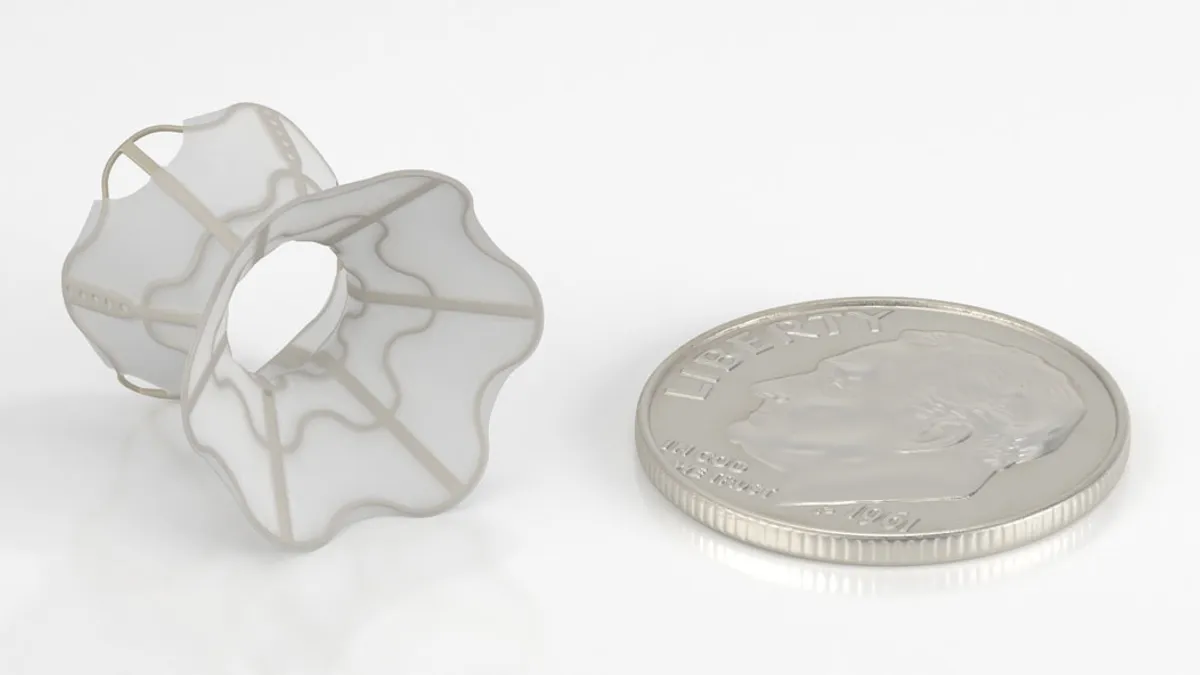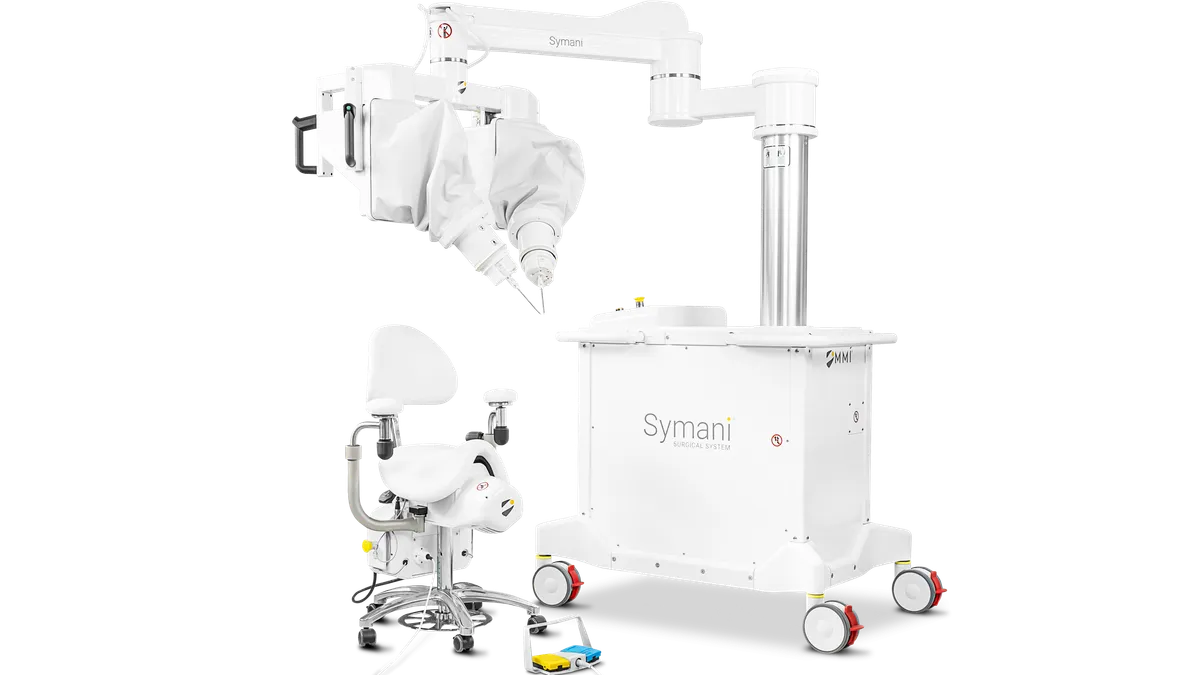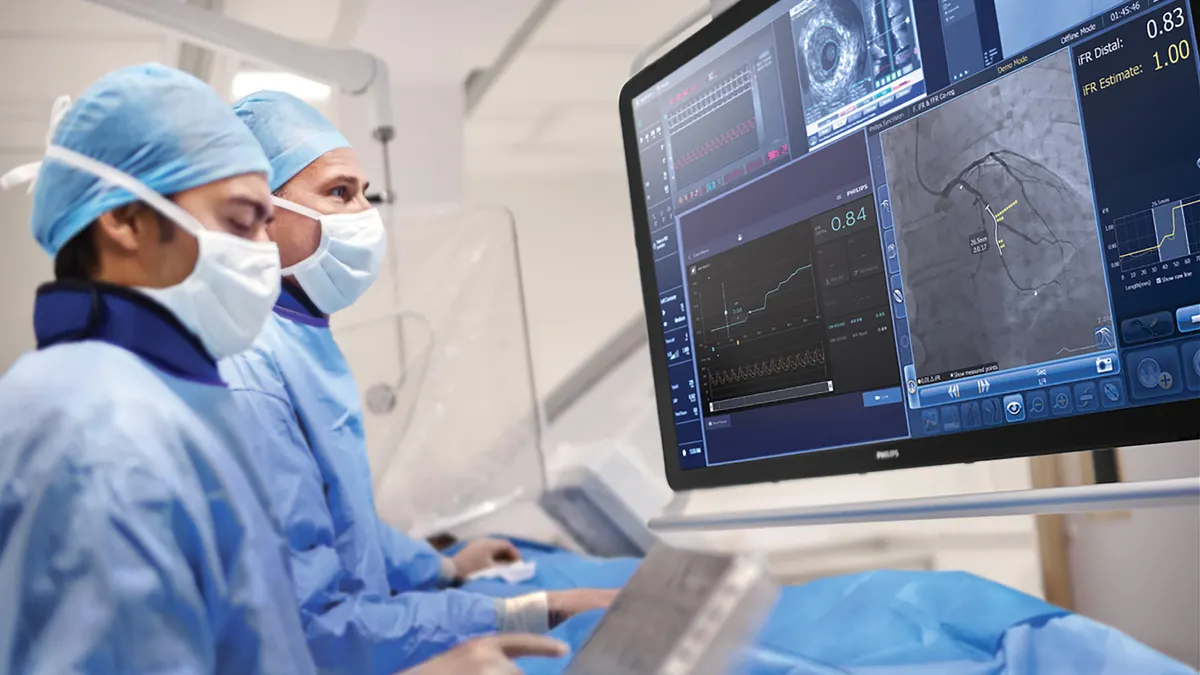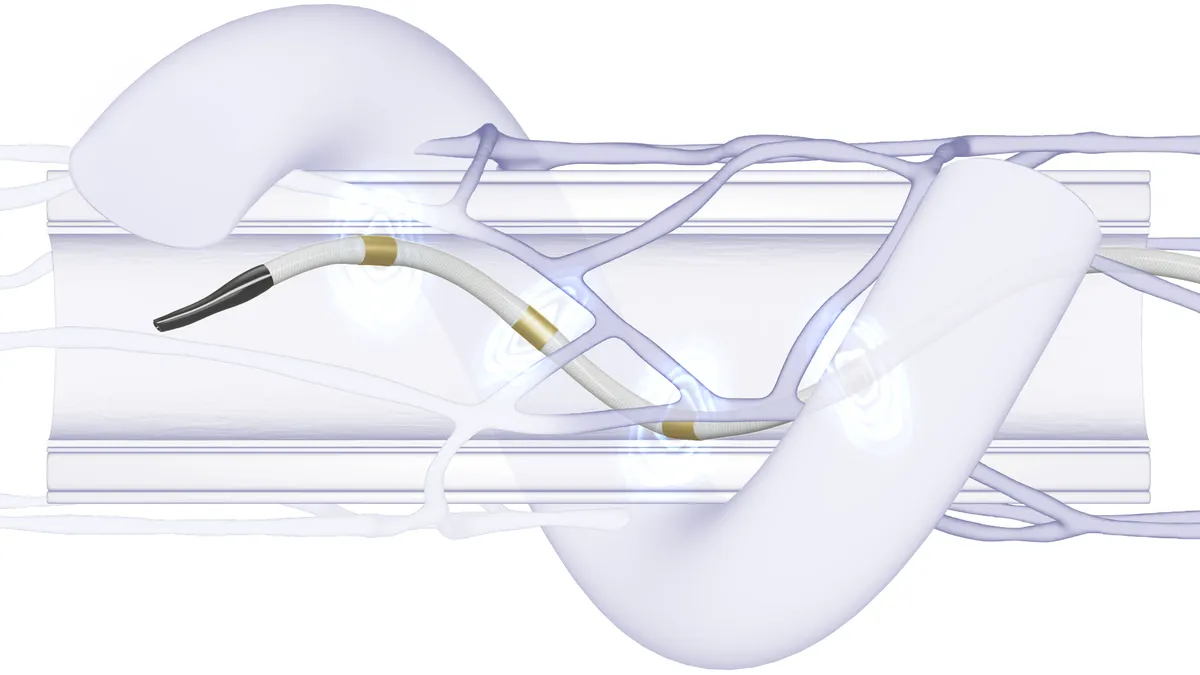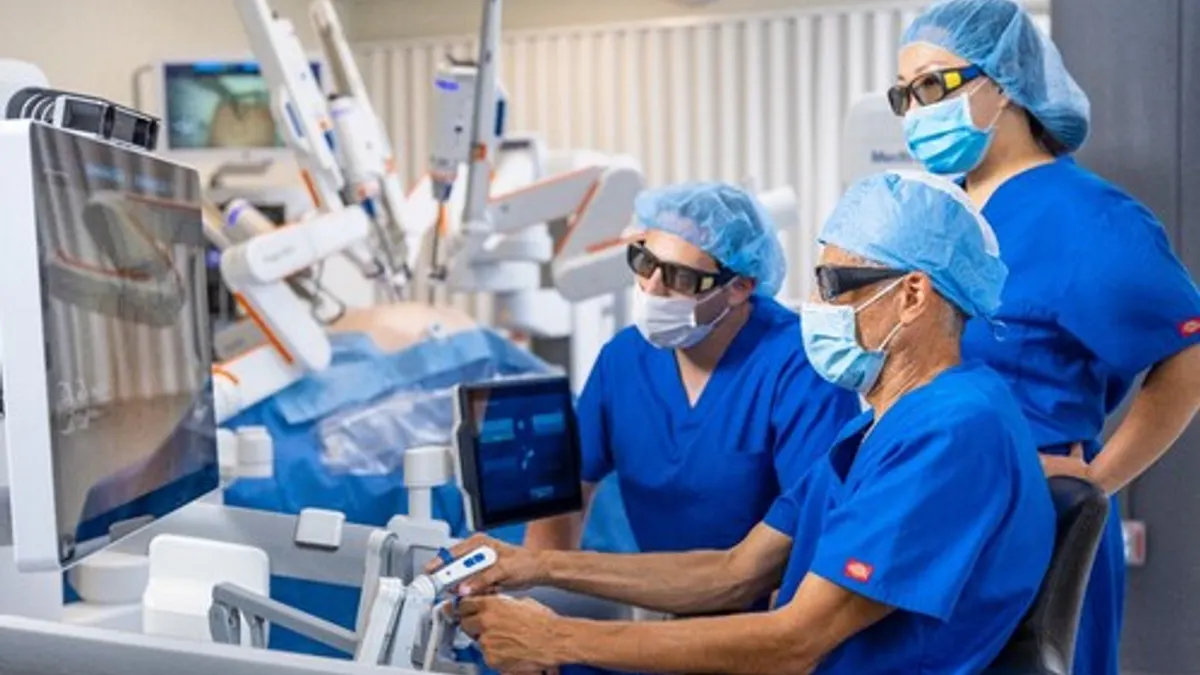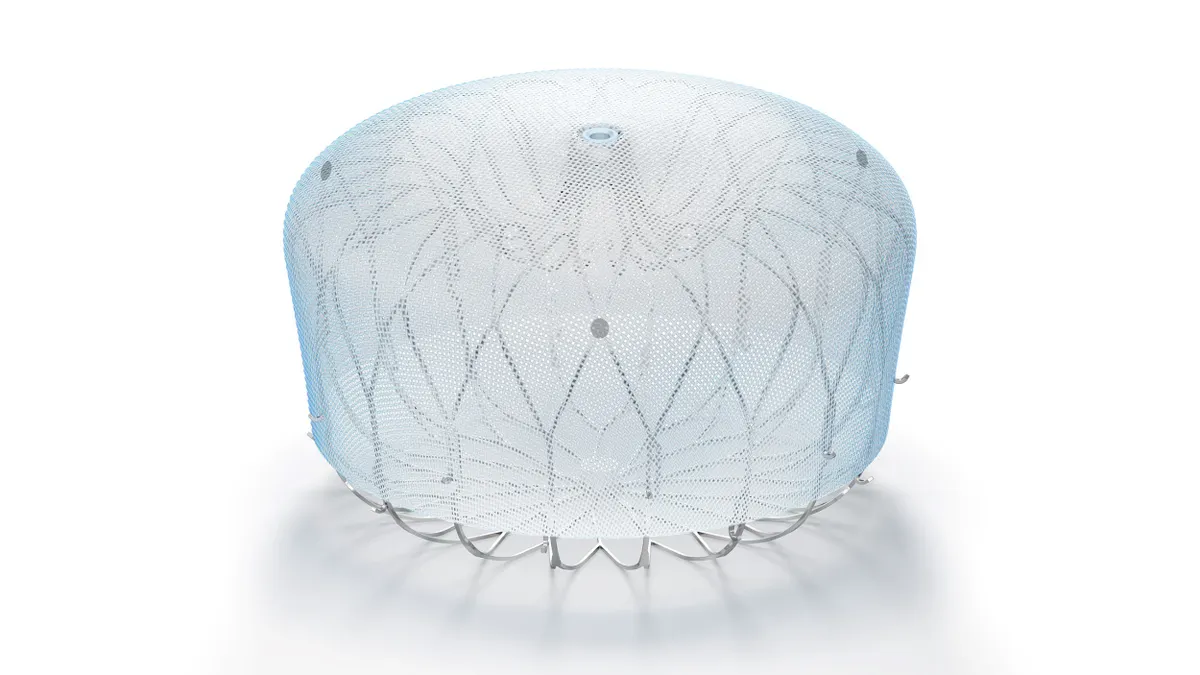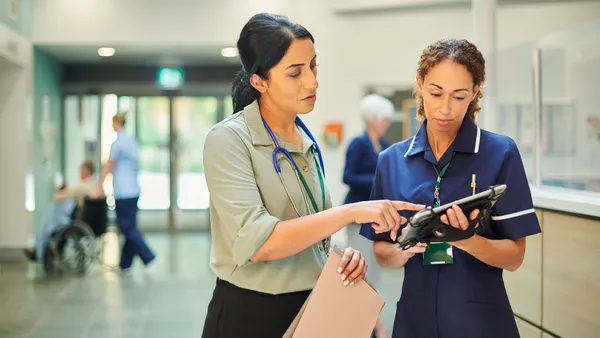A panel of independent experts consulted by the Food and Drug Administration endorsed Moderna's coronavirus vaccine on Thursday, largely agreeing the benefits of vaccination outweigh the risks in adults aged 18 years or older.
The advisory committee meeting is one of the final steps in the FDA's review of Moderna's vaccine, and their support likely clears the way for the agency to quickly authorize emergency use of the shot. Last week, the same group strongly supported a vaccine developed by Pfizer and BioNTech, which the FDA pauthorized the next day in a landmark decision.
Moderna's vaccine was shown to be 94% effective at preventing COVID-19 in a clinical trial of some 30,000 volunteers, data from which were presented to the committee Thursday by both the biotech company and the FDA. Side effects to the shot were common but mild to moderate in most participants, generally flu-like symptoms such as fatigue, headache, muscle and joint pain.
The results, which the FDA affirmed in its own review, were convincing to the panelists, who focused many of their questions on detailed points about rare adverse events and the fate of Moderna's ongoing trial should the shot be authorized. In the end, the committee voted 20-0 in support of the vaccine, with one member abstaining.
This time, there was less drama around the committee's vote than last week, when four panelists voted "no" following a back-and-forth debate over whether Pfizer and BioNTech's vaccine should be authorized for use in 16- and 17-year-olds as well as adults.
Moderna did not study their vaccine in any people younger than 18, so the company requested authorization only for adults.
"To go from having a sequence of a virus in January to having two vaccines available in December is a remarkable achievement," said James Hildreth, president and CEO at Meharry Medical College in Nashville and a committee member.
Even with the 20-0 vote, there was some last-minute arguing over the phrasing of the FDA's voting question. Michael Kurilla, a director at the NIH's National Center for Advancing Translational Sciences, questioned whether it would appropriately convey the emergency nature of any authorization that might be issued. He eventually abstained, calling for more narrowly tailored use of the vaccine.
Another point of contention during the day's discussion was how to adapt Moderna's trial following an authorization. While the study reached its main conclusion on the vaccine's efficacy, the biotech intends to follow participants for up to two years to track safety over time. The FDA typically requires at least six months of safety data before granting a full approval of a vaccine; Moderna currently has a median of nine weeks.
Offering participants who received placebo a vaccine, which Moderna intends to do, would complicate that follow-up. Some advisers supported an approach known as "blinded crossover," in which participants given the vaccine would get a placebo injection, and vice versa, but neither group would be told which they received.
A majority of panelists, however, argued that doing so would likely be logistically infeasible. They supported allowing participants to receive the vaccine, but still remain in the study.
"I think we have given the FDA a sense of our wish that we could do a crossover blinded design, but the realization that that may be impossible," said committee chair Paul Monto, a professor and epidemiologist at the University of Michigan.
Moderna, the FDA and other vaccine developers are in an unusual and challenging position, given the pressure the pandemic's devastating impact has put on the typically methodical course of clinical research. Moderna, for example, highlighted the 30 cases of severe COVID-19, and one resulting death, among participants in its study who received placebo.
The question of what to do with placebo participants is important not just for Moderna and its vaccine, but also for the other experimental shots still in development. Maintaining a "blinded," placebo-controlled study in a country where authorized vaccines are available will become more and more difficult, panelists noted.
Already some participants in Moderna's trial have dropped out following authorization of Pfizer and BioNTech's vaccine, said Lindsey Baden, a physician at Brigham and Women's Hospital in Boston and an investigator in the study who presented for Moderna.
Johnson & Johnson has nearly completed recruiting participants into a large study of an experimental vaccine it's developing, while AstraZeneca has enrolled more than 20,000 volunteers into a U.S. trial of a shot invented by the University of Oxford. Proving both can prevent COVID-19 is critically important for both the U.S. and other countries, which need multiple candidates to succeed for any hope of immunizing much of the world's population.
Committee members also spent considerable time discussing the initial rollout of Pfizer and BioNTech's vaccine, in particular reports of four cases of allergic reactions among people who were given the shot in the U.K. and the U.S.
Doran Fink, a deputy director for the FDA division that oversees vaccines, said there could be more reports as the vaccine is given to hundreds of thousands, and eventually millions of people. But he noted that their detection is a sign safety surveillance systems are "working exactly as designed."
Moderna did not identify any cases of vaccine-related anaphylaxis in its late-stage trial and, when questioned by committee members, noted that it had observed only one allergic reaction among 1,700 volunteers tested with one of eight other vaccines the company is developing. That case, in a woman with soy allergies, occurred a month after vaccination.
Should the FDA agree with the advisory committee's recommendation and authorize Moderna's vaccine, the U.S. government would begin distributing nearly 6 million doses the company has ready to ship. Moderna expects to have produced 20 million doses by the end of the month, all of which would go to the U.S. under a supply deal signed with the Trump administration earlier this year.
The administration recently agreed to purchase more doses, bringing the total number of doses pre-ordered to 200 million. Moderna's vaccine is given as two doses, spaced four weeks apart.
While Moderna's shot can be stored and shipped at warmer temperatures than Pfizer and BioNTech's, it still must be kept at minus 20 degrees Celsius.
Editor's note: This article has been updated to include comments made by several committee members during the meeting.







